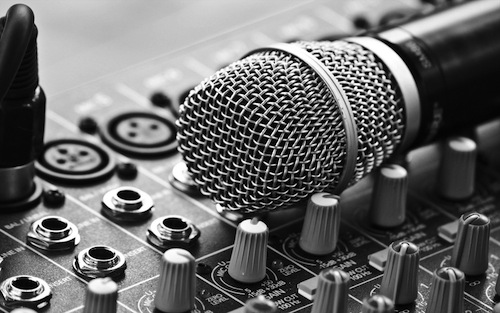We’re amidst an era of superabundance. Western capitalism has found a way to supply a huge amount of products to a huge amount of people at a reasonably low price. We see this everyday in supermarkets and shopping malls. However, no section of the economy is experiencing this superabundance quite like the music industry is.
Today anybody with a laptop, a mic and some software can upload unlimited amounts of musical content to the Web, methodically contributing to the superabundance of digital music. This alone is problematic because the value of a commodity is measured with respect to scarcity. In other words, what makes something valuable is the fact that there’s a limited supply of it. In today’s digital music market, the supply of music is everything but limited. Add to this the fact that digital music can be easily obtained for free in a variety of ways, and we’ve got the music industry’s biggest issue: the value of recorded music has severely diminished.
So how can we restore the value of recorded music given these trying circumstances? The answer is not simple. I believe that most of the blame falls on the shortsightedness of the mainstream music industry (i.e. major record labels). Their goal since the CD era has been to turn out a high number of “hit singles” that are predicted to sell well. The problem here is that these songs have a short life span in the mainstream and are easily replaceable. As an unfortunate (yet ironic) side effect, this has contributed to the overall reduced economic value in recorded music by setting an industry standard of homogeneity—the products are formulaic and simplified. But this could actually be a good thing, depending on how you look at it. The lack of depth in the mainstream presents the opportunity for a significant change at the helms of the underground.
In contrast to the mainstream music industry, which is directed by big company executives, the underground music industry is directed primarily by the music-makers themselves. These empowered artists are the ones with the tools to restore the value of recorded music, not by imitating the mainstream model, but by doing the opposite. Where the mainstream standard has been formulaic and simplified, this next era will be defined by a higher quality of substance and originality. Especially in hip-hop. Kendrick Lamar has reflected this with his concept album Good Kid, M.A.A.D City and with his recent verse on the track “Control.” (Of course Kendrick is regarded as a mainstream rapper, which proves this type of music is not completely restricted to the underground).
Of course we can’t all be as lyrically gifted as Kendrick, but he is a prime example of the shifting tides in hip-hop. He is gradually restoring the value of recorded music by creating content that actually means something and that resonates with the listener. Today’s MCs like Kendrick and J. Cole (and let’s not overlook what Joey Badass has done with 1999 and Summer Knights either) have been spearheading a return to the conscious style of hip-hop that has been buried in the underground since the early 90s, and which also has great social implications in today’s world.
These artists have already gained solid footing in the music business, which is the toughest part of a career in music. For all the other talented rappers and producers out there, restoring the value of recorded music, and more importantly, of hip-hop, depends directly on the material itself. And I’m not talking about a simple gimmick or ploy. I’m talking about making music for the purpose of communicating a message to the audience. This is where the true value of music lies. And don’t be deterred from collaborating with other artists who share the same perspective. In fact, the most efficient way to break through the noise in today’s music world is to do it with a team—that way there’s more material to maintain the attention of the audience. This is a tactic that has successfully been used by groups like A$AP Mob, Odd Future, and Pro Era.
In order to restore the value of recorded music, we must actually treat it as something inherently valuable. After all, where would mankind be without music? It’s arguably our most effective vehicle not only for mass communication, but also for social unity. Real hip-hop came into fruition as a means of social commentary and its true value can only be reinstated by appreciating it for that exact purpose.
The art in hip-hop comes from how you deliver the message. You’ve gotta be an original storyteller with a natural knack for vernacular. Listen to Lupe Fiasco “Dumb It Down” from ’07. Lupe, a complex poet, masterfully lays out the problem with mainstream hip-hop while simultaneously representing exactly what the new age of hip-hop should aspire for lyrically.
By Lenny W.


